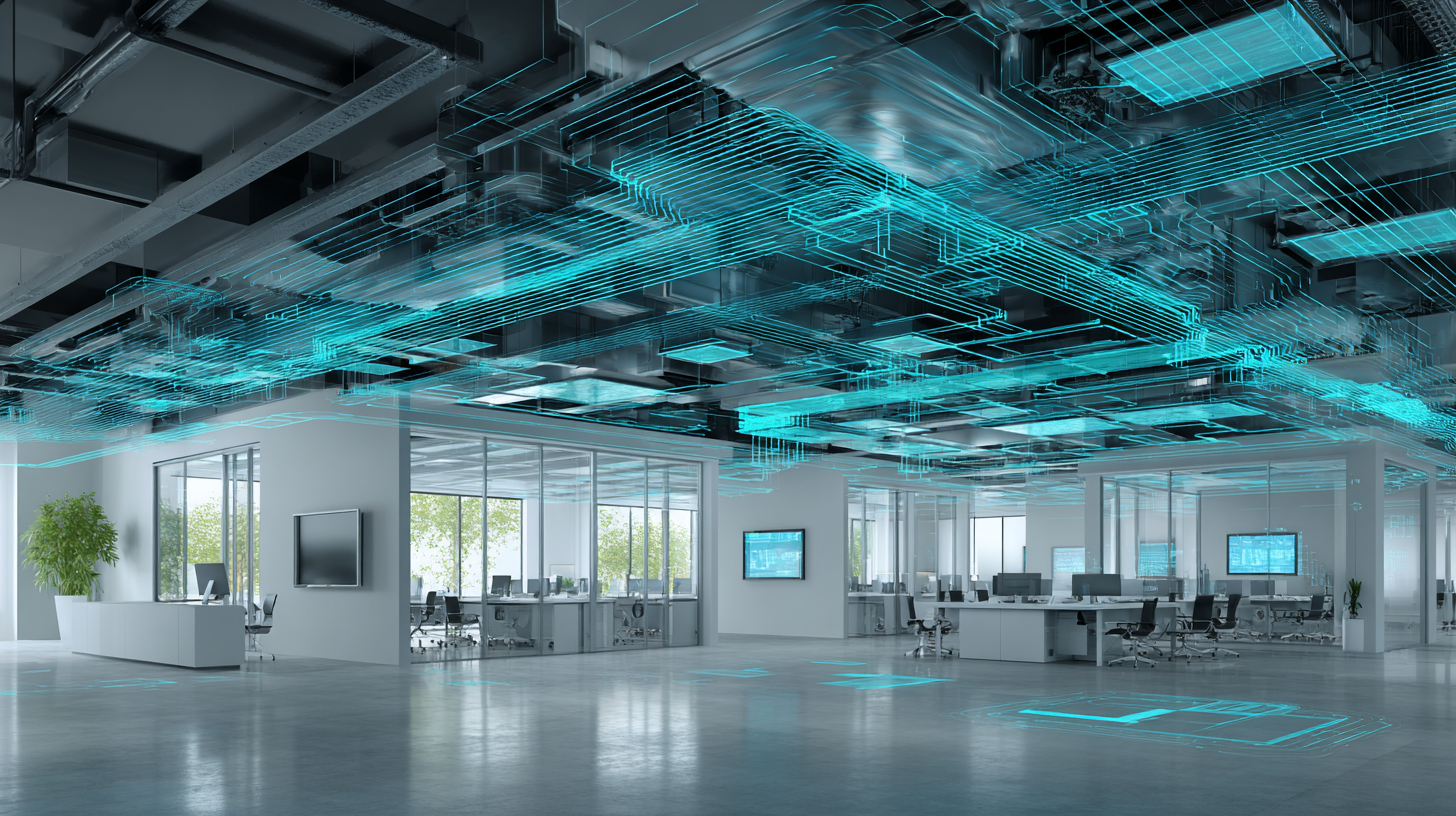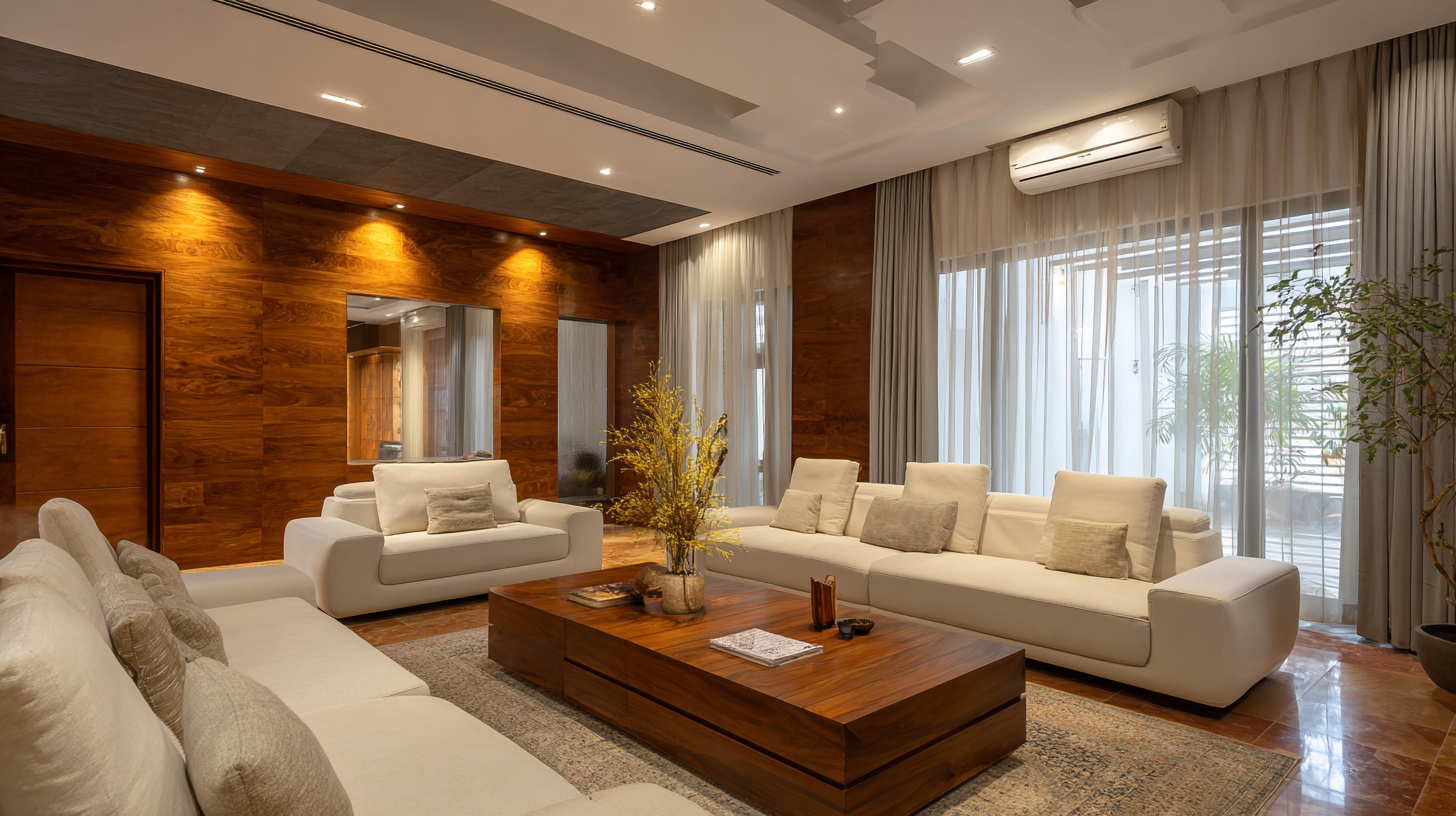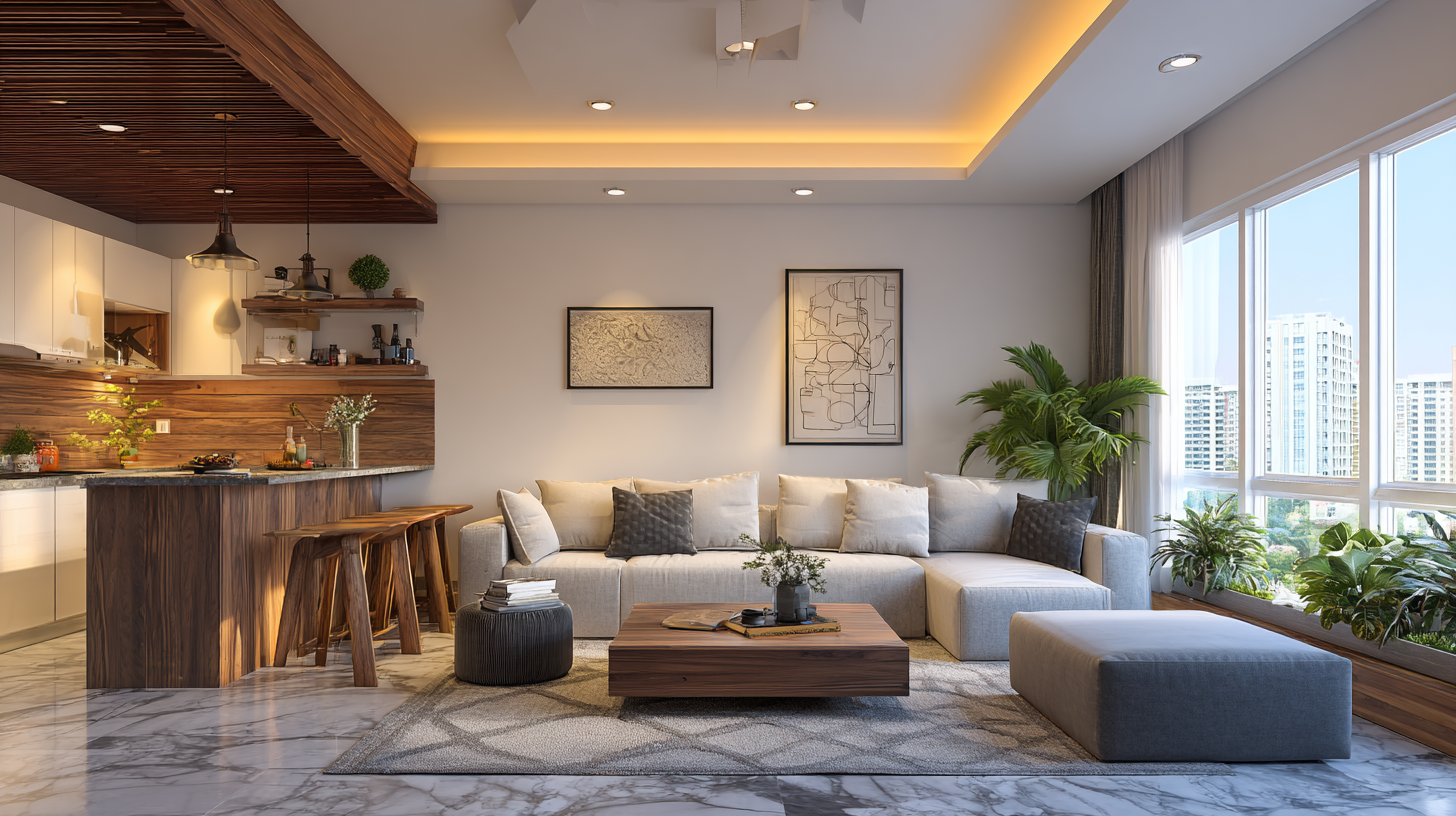
Smart HVAC: The Future of Commercial Construction
The demand for energy-efficient commercial buildings has never been higher. As businesses strive to reduce operational costs and their environmental impact, developers are turning to innovative technologies to create smarter, more sustainable spaces. At the forefront of this shift are smart HVAC systems, which are revolutionizing the comfort, cost-effectiveness, and green credentials of modern commercial properties.
As a forward-thinking construction company, Buildiyo stays ahead of the curve by integrating these modern building technologies into our projects. This guide explores the transformative power of smart HVAC systems and explains why they are becoming a standard feature in commercial construction. We will cover what these systems are, their benefits, and how their early integration is crucial for success.
For any business owner or developer planning a new project, understanding this technology is key to creating a building that is not only comfortable and efficient but also future-proof.
What Are Smart HVAC Systems?
A smart HVAC (Heating, Ventilation, and Air Conditioning) system goes far beyond the capabilities of a traditional one. While conventional systems often rely on manual adjustments and operate on simple on/off cycles, smart HVAC systems use a network of advanced technologies to automate and optimize climate control.
The core technologies driving these systems include:
- Sensors: These devices are placed throughout a building to collect real-time data on temperature, humidity, occupancy, and air quality.
- Internet of Things (IoT): IoT connectivity allows various components of the HVAC system to communicate with each other and with a central management platform.
- Artificial Intelligence (AI): AI algorithms analyze the data collected by sensors to learn occupancy patterns, predict maintenance needs, and make intelligent adjustments to temperature and airflow.
- Automation: Based on AI-driven insights, the system automatically adjusts its operation to maintain optimal conditions while minimizing energy use.
Examples of smart HVAC components include smart thermostats that learn preferences, zoned climate control systems that allow for different temperatures in different areas, and energy management dashboards that provide facility managers with real-time performance data.
Why Smart HVAC Systems Matter in Commercial Construction
The adoption of smart HVAC technology is not just a trend; it’s a direct response to several critical factors shaping the commercial real estate market.
Firstly, rising energy costs and a global push toward sustainability have made green buildings more attractive to tenants and investors. Smart HVAC systems are a cornerstone of energy-efficient design, helping properties achieve prestigious certifications like LEED (Leadership in Energy and Environmental Design) and GRIHA (Green Rating for Integrated Habitat Assessment).
Secondly, the quality of the indoor environment has a direct impact on the well-being and productivity of occupants. In spaces like offices, malls, and hospitals, maintaining superior air quality and thermal comfort is essential. Smart systems continuously monitor and adjust conditions to create healthier and more pleasant environments.
Finally, modern building codes and energy efficiency standards are becoming stricter. Integrating smart HVAC systems from the outset ensures compliance and positions a building as a premium, forward-thinking property.
Key Benefits of Smart HVAC Systems
Energy Efficiency & Cost Savings
Smart HVAC systems significantly reduce energy consumption by using intelligent automation. Instead of running at full capacity, the system adjusts based on real-time needs, such as occupancy levels and outdoor weather conditions. This can lead to substantial savings on utility bills. Furthermore, predictive maintenance capabilities analyze performance data to flag potential issues before they cause a system failure, reducing downtime and expensive repair costs.
Improved Indoor Air Quality
A major advantage of smart HVAC systems is their ability to monitor and improve indoor air quality (IAQ). Sensors track levels of pollutants, humidity, and CO₂ in real time, automatically increasing ventilation when needed. This creates a healthier environment for employees, customers, and visitors, which can lead to increased productivity and overall well-being.
Remote Control & Smart Integration
Facility managers can monitor and control smart HVAC systems remotely via mobile apps or cloud-based dashboards. This allows for quick adjustments and troubleshooting without needing to be physically present. These systems also integrate seamlessly with a building’s overall Building Management System (BMS), allowing for coordinated control of lighting, security, and energy systems for maximum efficiency.
Sustainability & Green Certification
By optimizing energy use, smart HVAC systems dramatically reduce a building’s carbon footprint. This commitment to sustainability is a major selling point for environmentally conscious tenants. The energy savings and advanced monitoring capabilities also contribute valuable points toward achieving green building certifications, enhancing the property’s market value and appeal.
Applications in Different Commercial Spaces
The flexibility of smart HVAC systems allows for tailored solutions across various commercial sectors:
- Office Buildings: Zoned climate control ensures different departments or meeting rooms can have customized temperature settings, maximizing comfort and efficiency.
- Retail & Malls: Systems can optimize air quality and temperature in high-traffic zones, adapting to fluctuating crowd sizes throughout the day.
- Warehouses & Factories: Maintaining consistent environmental conditions is crucial for protecting sensitive goods and equipment. Smart HVAC systems provide precise control over temperature and humidity.
- Hotels & Hospitals: In hospitality and healthcare, precision climate control is vital for guest comfort and patient hygiene. Smart systems can manage individual room temperatures and ensure optimal air filtration.
Integration During the Construction Phase
To fully realize the benefits of a smart HVAC system, it must be integrated during the early stages of design and construction. Retrofitting a traditional system later can be costly and less effective.
Early integration allows architects and engineers to design a system that is perfectly tailored to the building’s layout and intended use. At Buildiyo, one of the top builders in Chennai, we use Building Information Modeling (BIM) to create precise 3D models of the HVAC layout. This ensures seamless coordination between the HVAC, electrical, and structural systems, preventing conflicts and optimizing performance from day one.
Future Trends in Smart HVAC Systems
The technology behind smart HVAC is constantly evolving. Future advancements will likely include:
- AI-powered self-learning systems that become even more efficient over time.
- Integration with renewable energy sources, such as solar-powered HVAC.
- Smart ventilation that responds dynamically to real-time occupancy data.
- Advanced predictive maintenance that uses IoT sensors to forecast equipment failure with even greater accuracy.
Build for the Future with Buildiyo
Smart HVAC systems are no longer a luxury—they are an essential component of modern commercial construction. They offer unparalleled benefits in energy efficiency, cost savings, occupant comfort, and sustainability. For developers and businesses looking to build future-ready spaces, embracing this technology is a clear path to success.
As the best commercial construction company in Chennai, Buildiyo has the expertise to integrate sophisticated smart building systems into your projects. Our commitment to quality, efficiency, and environmental responsibility ensures that we deliver intelligent buildings designed for the demands of tomorrow.
Partner with Buildiyo to create your next future-ready commercial space.



